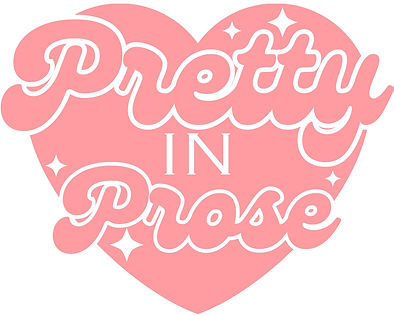my year of rest and relaxation by ottessa moshfegh | book review
- Gracyn Lian
- Aug 30, 2024
- 4 min read
Updated: May 5
My Year of Rest and Relaxation by Ottessa Moshfegh
Published on July 10, 2018 by Penguin Books
Genres: Contemporary Fiction, Mental Health
Pages: 289
Format: Physical
Add to Goodreads
Buy on Amazon
★★★★☆
From one of our boldest, most celebrated new literary voices, a novel about a young woman’s efforts to duck the ills of the world by embarking on an extended hibernation with the help of one of the worst psychiatrists in the annals of literature and the battery of medicines she prescribes.
Our narrator should be happy, shouldn’t she? She’s young, thin, pretty, a recent Columbia graduate, works an easy job at a hip art gallery, lives in an apartment on the Upper East Side of Manhattan paid for, like the rest of her needs, by her inheritance. But there is a dark and vacuous hole in her heart, and it isn’t just the loss of her parents, or the way her Wall Street boyfriend treats her, or her sadomasochistic relationship with her best friend, Reva. It’s the year 2000 in a city aglitter with wealth and possibility; what could be so terribly wrong?
My Year of Rest and Relaxation is a powerful answer to that question. Through the story of a year spent under the influence of a truly mad combination of drugs designed to heal our heroine from her alienation from this world, Moshfegh shows us how reasonable, even necessary, alienation can be. Both tender and blackly funny, merciless and compassionate, it is a showcase for the gifts of one of our major writers working at the height of her powers.
Some books are so raw that they leave you feeling as if you were carved from the inside out until you're nothing but a hallow husk left as a nest for the book to settle deep inside.
When I finished this book, I couldn't help but stare at the wall across from me blankly, wondering, What the hell did I just read?
My Year of Rest and Relaxation follows a girl and her struggle with mental health for which she finds an unusual solution. She is not quite suicidal; rather, she decides that she is a phoenix and plans to sleep for an entire year, after which she will be reborn in such a way that her past will have faded to insignificance. In her mind, this extended nap is a factory reset.
She plans to knock herself out with a concoction of over-the-counter and prescription drugs that she gets from her therapist, waking up only for a handful of hours each day to do the bare necessities of human function. She doesn't even remember the moments awake.
“Oh, sleep. Nothing else could ever bring me such pleasure, such freedom, the power to feel and move and think and imagine, safe from the miseries of my waking consciousness.”
I can count myself lucky that I have not had to struggle to such an extent with my mental health as to prefer sleep over being awake. I think it is for this exact reason that made me so enthralled with the story. Moshfegh emphasizes the "illness" part of mental illness.
Like a cold or a flu, depression can strike any one of us without rhyme or reason. We see this in our main character. On the surface, she seems like she has no reason to be depressed: she's a rich, conventionally beautiful WASP (white Anglo-Saxon person). One could argue that this book feels privileged, but I think it only reinforces the idea that mental illness is an inclusive parasite that doesn't care about the type of person it chooses as a host.
Moshfegh's writing properly conveys the main character's sense of apathy in such a way that even I was feeling a bit hopeless by the time I finished this book. That feeling was also caused by the fact that Moshfegh refused to give us an uplifting resolution to the story. Instead of discovering a newfound appreciation and joy in life, the last scene shows our main character passively observing life while sitting on a bench. The grass is green and the sky is blue, but the reader is left wondering if the year of sleep was successful at all.
“My sleep had worked. I was soft and calm and felt things. This was good. This was my life now.”
The writing style also perfectly brings the sense that time is a manmade construct. Some parts felt languid and slow, while other parts felt juttery and fast, a dream sequence. The reader becomes engrossed in the inner workings of the protagonist's mind and her fixation on sleep as she listlessly goes through the motions of life.
I first discovered this book through BookTok, so I was a bit wary of whether this would be good or if it could be lumped in with the other famous BookTok recommendations like Icebreaker and Fourth Wing, both of which I don't ever plan to read unless they're the only two books left in existence.
Needless to say, this book surpassed all my expectations in such a way that I will recommend this to anyone who asks. Moshfegh tackles themes of mental illness with such a brilliant execution that the protagonist's hopelessness permeates the pages and begins to affect the reader as we're taken on her journey with her.
“Nothing seemed really real. Sleeping, waking, it all collided into one gray, monotonous plane ride through the clouds. I didn't talk to myself in my head. There wasn't much to say. This was how I knew the sleep was having an effect: I was growing less and less attached to life. If I kept going, I thought, I'd disappear completely, then reappear in some new form. This was my hope. This was my dream.”








Comments